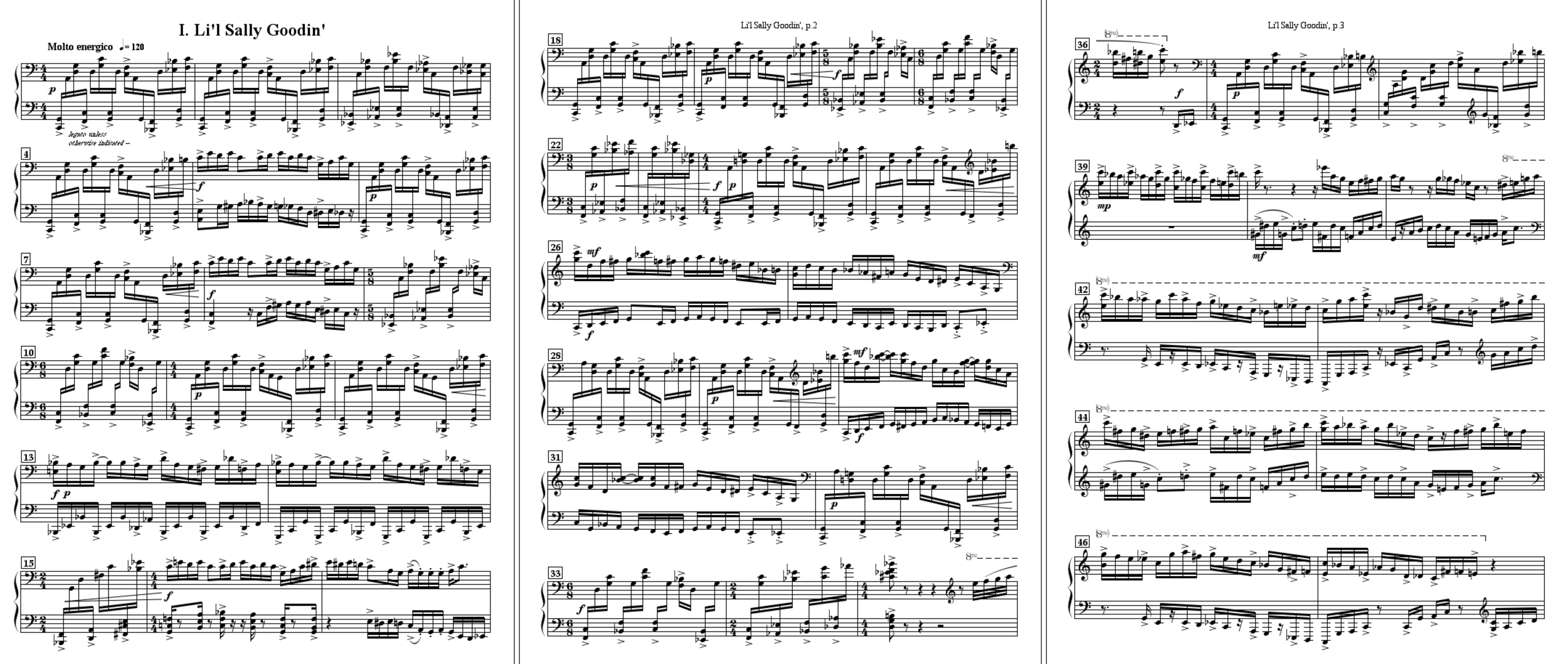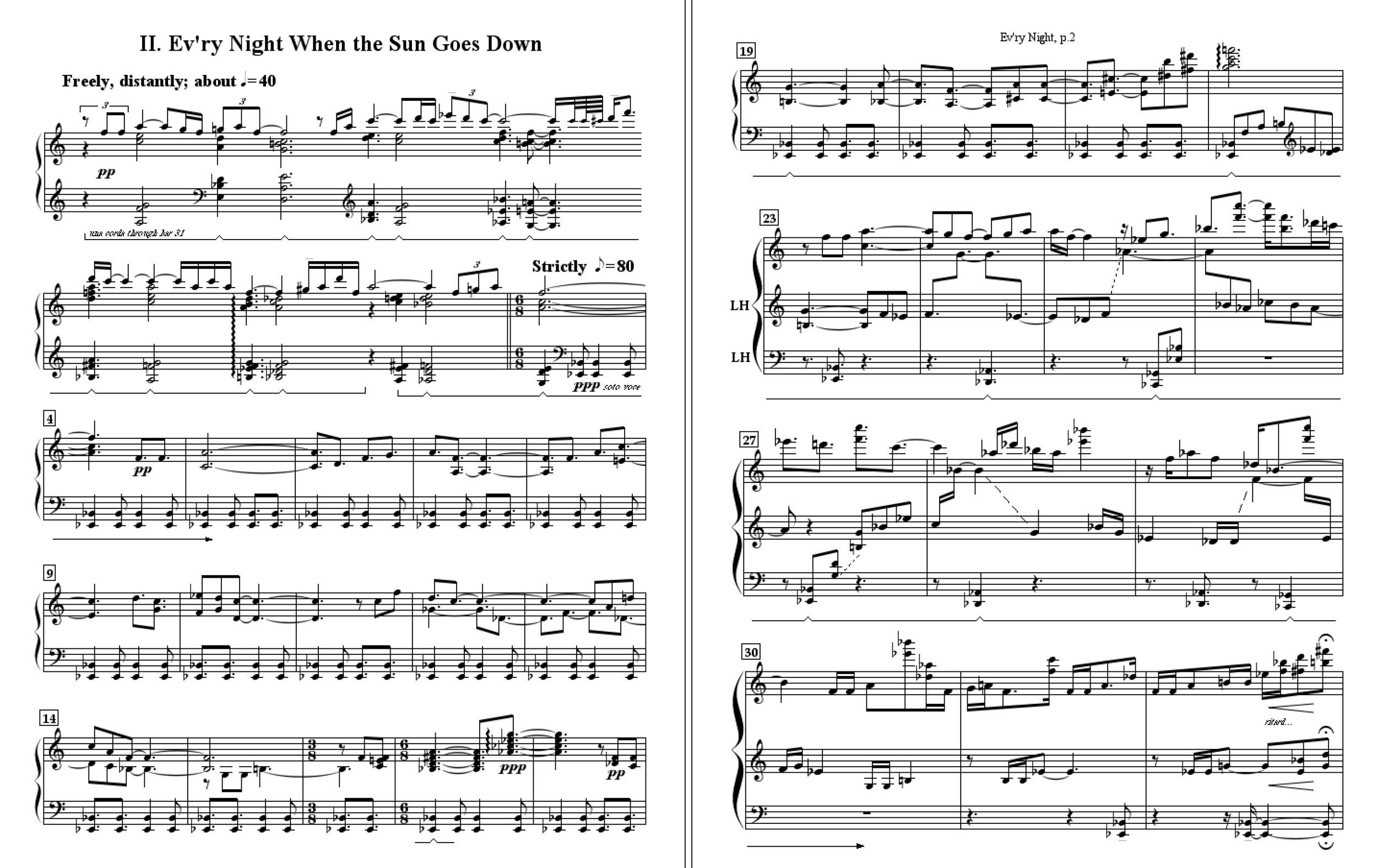Fiddlins’ (2015) - Sonata for Piano on Appalachian fiddle tunes
$20 for score and demo; order here. The mountains of Appalachia are home to a rich tradition of music making, with roots in the folk music of England, Scotland and Ireland. The collection and documentation of these tunes began in earnest in the early 20th century, in sync with the invention of sound recording and the flowering of ethnomusicology. These paraphrases strive to be worthy recital pieces that also capture the verve, virtuosity, and tenderness of the fiddle and banjo in their traditional renderings of these classic melodies. Complete program notes are here.
I. Little Sally Goodin’ - According to North Carolina fiddler Bruce Green, this tune was originally called Boatin' Up Sandy (referring to the Big Sandy River in eastern Kentucky) and was renamed by Civil War Confederate soldiers in Morgan's Raiders while they were camped on the Big Sandy in Pike County, Kentucky. Sally Goodin ran a boarding house there and allowed the soldiers to camp and play music. To show their appreciation of her kindness, Morgan's men renamed the tune in her honor.
II. Ev’ry Night When the Sun Goes Down - An Appalachian song originally from England, collected in 1918 from a North Carolina woman by the legendary British folk song collector Cecil Sharp. It concerns a desperate young girl who is pregnant and has been abandoned by the father of the child. She mourns that her future is grim; “Marble Town” refers to the graveyard.
III. Cluck Old Hen - A widespread song, popular as a banjo and fiddle tune, this humorous classic may have originated as a 19th century African American work song from south Texas. It was sung and played from there through Kentucky before the Civil War.
IV. The Nightingale - A tender soldier ballad with a surprise ending from Ohio. An ardent young soldier woos a winsome young lady by playing his fiddle; he asks her to marry him, but she entreats him to play one more tune. In the end she reveals that she is married, with six children. He resolves to steep himself in melancholy, drink, and the singing of the nightingales in spring.
V. Old Joe and Li’l Liza - Li’l Liza Jane, first published in 1916, may have originated with African American slaves well before the Civil War. It has been recorded instrumentally in many styles, including jazz, folk, and rock; it is also a standard of the New Orleans Brass Band tradition. Old Joe Clark is a mountain ballad that was sung by soldiers from eastern Kentucky in World War I, and likely dates from much earlier. Joe Clark was a mountaineer who was born in 1839 and murdered in 1885. More than 90 stanzas of lyrics are known. This arrangement alternates rapidly between the two tunes, and at some points it sounds them simultaneously.





